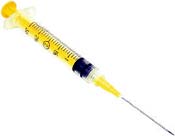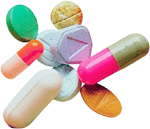SUBSTANCE ABUSE SCREENINGS
Alcohol
Screenings
Internet screenings:
www.guidetofeelingbetter.org
www.alcoholscreening.org
http://www.alcoholics-anonymous.org/default/en_about_aa.cfm?pageid=4
Phone or personal screening:
To
take a free, confidential alcohol screening and
receive a free mental health consultation by phone
or in person call 859–431–1077.
About Screenings
Free valid reliable screening questionnaires are a good first step to help an individual recognize the signs mental disorders and help in discovering if a mental illness might be present. Substance abuse and mental disorders can be complicated illnesses and no single questionnaire or test can be used to accurately diagnose this illness. Accurate diagnosis is obtained only through a thorough evaluation with a physician. The Mental Health Association offers only nationally accepted research-based screening tools that ensure the most reliable results, however, they are not meant to take the place of an evaluation by a physician or a mental health professional.
A positive result from screening questionnaires suggests that an individual could benefit from a comprehensive substance abuse or mental health screening. Regardless of the results of the surveys, if there are still concerns, contact your physician and/or mental health professional.
The Mental Health Association of Northern Kentucky can guide individuals to local mental health physicians, psychologist, hospitals, extended care facilities and other support services. The Mental Health Association of Northern Kentucky does not endorse or recommend the use of any specific treatment plan or medication.
Warning
Signs of Teen Drug Use/Abuse
-
Abrupt
changes in attendance, quality of work, work
output, grades, discipline
-
Unusual
flare-ups or outbreaks of temper
-
Withdrawal
from responsibility
-
General
change in overall attitude
-
Deterioration
of physical appearance and grooming
-
Wearing
of sunglasses at inappropriate times
-
Continual
wearing of long-sleeved clothing particularly
in hot weather
-
Association
with known substance abusers, or suddenly popular
with new friends who are older and unknown to
family members
-
Unusual
borrowing of money – or stealing – from friends,
co-workers and family members
-
Secretiveness
or desperation for money
-
Inappropriate
overreaction to mild criticism
-
Use
of odd words
-
Paranoia
-
Car
accidents and other accidents, like falling
down
-
Chronic
dishonesty
-
Smoking
cigarettes
-
Heavy
use of over-the-counter medications to reduce
eye irritation, nasal irritation and bad breath
-
Secretive
behavior regarding actions and possessions;
poorly concealed attempts to avoid attention
and suspicion such as frequent trips to storage
rooms, restrooms, basement, etc.
-
Abrupt
change in behavior
-
Shortened
attention span such as slurred speech, jumbled
thinking
-
Deteriorating
judgment and short-term memory loss
-
Any
change in eating behavior that would cause rapid
weight gain or loss
-
Extreme
behavioral changes such as hallucinations, violence,
and unconsciousness
-
Unprescribed
or unidentifiable pills
-
Strange
articles that might be used as drug paraphernalia
-
Slow
staggering walk, poor physical coordination
-
Change
in sleep pattern
-
Red,
watery eyes; pupils very large or small; blank
stare
-
“I
don't care” attitude
-
Going
out almost every night
Adolescence
is a time of physical and attitudinal changes. Some
of the signs and symptoms of drug use/abuse are
typical adolescent behavior. However, if your gut
reaction is that your child’s behavior is unusual,
or if your child exhibits several of these signs/symptoms,
a substance abuse assessment is warranted.
When
parents become suspicious, many want to rush to
have a urine drug screen done. Your family physician
can do this. However, since many substances do not
stay in the substance long, an assessment by a qualified
substance abuse professional is recommended.
Warning
Signs of Adult Substance Abuse
-
Social
use of substances occurs more heavily and more
often.
-
Blackouts
(temporary loss of memory which is different
from passing out) occur more frequently.
-
Will
hide or sneak use of substances from family
and friends.
-
Inability
to quit using once starting.
-
Using
excuses for use such as pressures from job.
-
Needing
a substance to get going in the morning.
-
May
develop anti-social behavior
-
Loss
of friends, family and job
-
Seeking
medical attention because their use is causing
physical and/or mental problems.
-
May
go in binges of using substances for long periods
of time.
-
May
get the shakes or tremors.
-
Continued
denial that a problem exists.
-
Problems
with the legal system (alcohol and drug related
charges like DUI and possession)
If
you recognize these symptoms in yourself, see a
qualified substance abuse professional immediately.
If you recognize these symptoms in a loved one,
an intervention is warranted. A qualified substance
abuse therapist can help you organize and facilitate
an intervention to encourage your loved one to seek
treatment. If your loved one refuses, attend Al-Anon
and seek therapy to guide you in how to deal with
the situation.
|